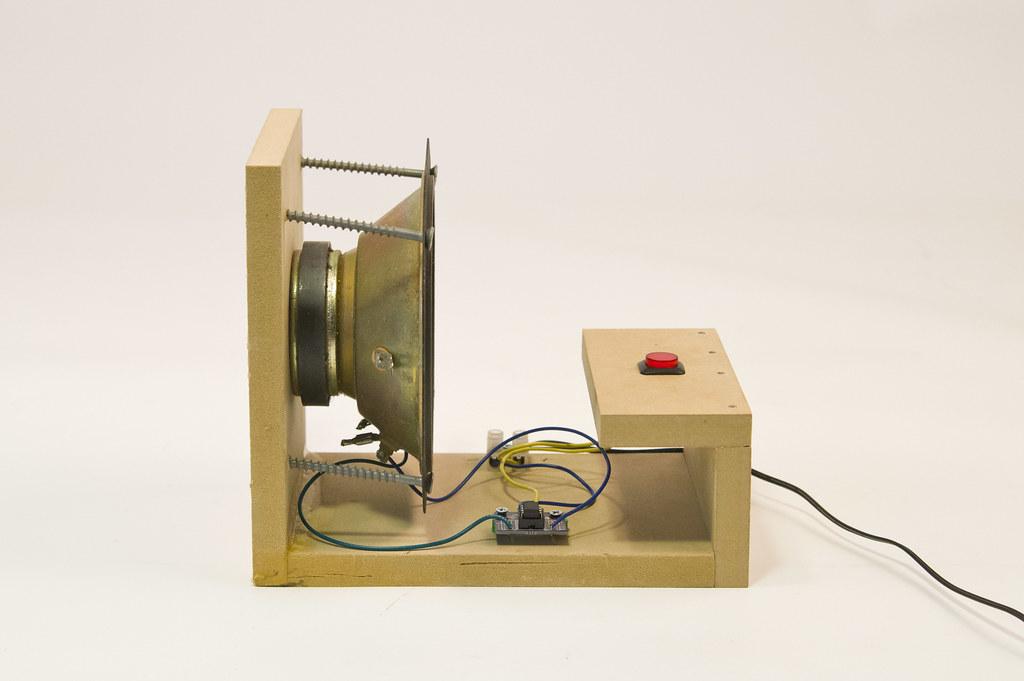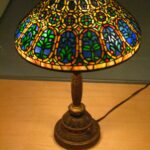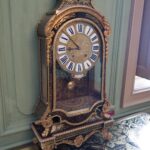In an era where the fast pace of modern living often blurs the lines between the old and the new, the charm of vintage real estate stands as a testament to the stories and craftsmanship of yesteryears. Vintage Real Estate Services taps into this nostalgia, celebrating properties that carry the unique essence of history, culture, and architectural artistry. From quaint bungalows adorned with intricate woodwork to stately Victorian homes that whisper tales of generational lives, vintage real estate offers more than just a dwelling; it provides a connection to a richer past. This article delves into the world of vintage real estate services, exploring the nuanced processes of buying and selling heritage homes and the dedicated professionals who strive to preserve their timeless allure. Whether you are a seasoned aficionado or a curious newcomer drawn to the elegance of bygone eras, join us as we uncover the treasures of vintage real estate and the stories they hold.
Exploring the Allure of Vintage Properties in Todays Market
The charm of vintage properties resonates with homebuyers and investors alike, offering a unique blend of history and character that modern builds often lack. These homes, often characterized by their distinctive architectural styles and intricate details, provide a sense of nostalgia and warmth that appeals to many. Consider the following benefits:
- Unique Architecture: Vintage properties often showcase distinctive styles such as Craftsman, Victorian, or Colonial Revival, each with their own story.
- Quality Craftsmanship: Many older homes were built with materials and techniques that stand the test of time, offering durability and aesthetic appeal.
- Community Character: Vintage neighborhoods often boast rich histories and a strong sense of community identity.
Moreover, investing in vintage real estate can be a savvy financial decision as these properties often appreciate over time. In the current market, where new constructions can feel generic and impersonal, vintage homes stand out as true gems. This trend can be supported by the following statistics:Belmont VintageVintage Hub Caps
| Aspect | Vintage Properties | New Constructions |
|---|---|---|
| Average Appreciation Rate | 6% annually | 4% annually |
| Character Score (1-10) | 9 | 5 |
| Maintenance Cost | Variable based on age | Lower initial costs |
Understanding the Unique Challenges of Vintage Real Estate Transactions
Vintage real estate transactions are laden with unique complexities that set them apart from more contemporary properties. One of the primary challenges is the intricate nature of the property’s history, which can encompass decades—or even centuries—of ownership. Buyers often encounter issues such as outdated building codes, historical preservation regulations, and unexpected repairs due to aging infrastructure. Notably, potential buyers must also contend with the emotional weight of previous owners’ memories, which can sometimes complicate negotiations and valuation. Understanding these nuances is critical for agents and clients alike, ensuring that all parties approach the transaction with sensitivity and awareness.
Moreover, the market dynamics for vintage properties tend to diverge significantly from current real estate trends. Buyers are often driven by a love for architectural details and historical significance, but this can lead to challenges in pricing. Factors to consider include:
- Market Demand: The appeal of vintage homes can fluctuate based on current design trends and buyer preferences.
- Renovation Costs: Many vintage properties require substantial investments to meet modern standards without sacrificing their character.
- Inspection Hurdles: Older properties are often subjected to more rigorous inspections, which can reveal costly problems not immediately visible.
To visualize these challenges, the following table outlines key aspects to consider when navigating vintage real estate transactions:
| Aspect | Considerations |
|---|---|
| Historical Significance | Potential for local landmark status may limit renovations. |
| Building Codes | Older homes may not comply with modern regulations. |
| Market Trends | Demand fluctuates based on buyer interest in vintage styles. |
Preserving Historical Charm while Meeting Modern Standards
In the world of vintage real estate, the delicate balance between maintaining historical integrity and adapting to contemporary needs is a challenge met with creativity and passion. Each property tells a story, and as custodians of these narratives, it’s essential to highlight their unique features while integrating modern comforts. Homeowners can benefit from various strategies to achieve this harmony:
- Careful Renovations: Focus on restoring original architectural elements, such as molding, fireplaces, and windows, while updating kitchens and bathrooms with modern amenities.
- Eco-Friendly Solutions: Implement sustainable materials and energy-efficient technologies that respect the charm of the original structure.
- Adaptive Reuse: Consider repurposing spaces within the property, such as transforming an attic into a cozy office while preserving antique beams and flooring.
To illustrate the advantages of preserving historical charm while incorporating modern standards, here’s a snapshot of key features to consider during renovations:
| Feature | Traditional Approach | Modern Integration |
|---|---|---|
| Lighting | Antique chandeliers | LED bulbs for energy efficiency |
| Heating | Radiators | Smart thermostat systems |
| Insulation | Traditional plaster | Eco-friendly insulation materials |
By carefully marrying these old and new elements, vintage properties can continue to thrive, offering both a nod to the past and a comfortable, modern living experience for today’s homeowners.
Expert Tips for Renovating Vintage Homes with Integrity
Renovating a vintage home requires a careful balance between modern needs and historical integrity. One of the first steps is to conduct a thorough assessment of the property’s original features. This ensures that any restoration maintains the essence of the home while enhancing its functionality. Consider these essential practices:
- Preserve Architectural Details: Focus on retaining original moldings, staircases, and fixtures. Any replacements should match the style and period of the home.
- Source Authentic Materials: Use period-appropriate materials whenever possible, including reclaimed wood, vintage tiles, and traditional paint colors.
- Consult Experts: Seek advice from specialists in vintage renovations, such as architects and designers who have experience with historical properties.
Furthermore, it’s vital to respect the historical context of the home while making updates. Balancing modern amenities with vintage charm can be achieved by:
- Incorporating Modern Technology: Seamlessly integrate modern systems, such as heating and cooling, that maintain comfort without disrupting the historical aesthetics.
- Enhancing Energy Efficiency: Consider energy-efficient windows and insulation that complement the look of the original structure.
| Original Features | Modern Upgrades |
|---|---|
| Original Windows | Energy-efficient replicas |
| Hardwood Flooring | Refinish instead of replace |
| Brass Fixtures | Replica modern plumbing |
Navigating Financing Options for Historic Property Purchases
When delving into the realm of historic property purchases, it’s crucial to explore a variety of financing options tailored specifically for these unique investments. Traditional mortgages may not always suffice; therefore, consider the following avenues:
- Historic Tax Credits: Many states offer tax credits that can significantly offset renovation costs for historic properties. These credits often apply to substantial rehabilitation projects, making them a valuable asset.
- FHA and VA Loans: The Federal Housing Administration (FHA) and Veterans Affairs (VA) offer loan programs that may accommodate properties listed on the National Register of Historic Places, often with favorable terms.
- Grants and Loans from State and Local Agencies: Various state and local programs exist to assist with the preservation of cultural heritage through grants and low-interest loans.
Understanding the specific requirements and processes associated with each financing option is essential. For instance, applicants for historic tax credits must comply with the Secretary of the Interior’s Standards for Rehabilitation. Additionally, the financing structure can impact the overall return on investment; thus, ensure you weigh the pros and cons carefully. Below is a quick comparison of some financing options:
| Financing Option | Advantages | Considerations |
|---|---|---|
| Historic Tax Credit | Substantial cost savings | Requires detailed documentation and rehabilitation plans |
| FHA/VA Loans | Lower down payments | Property must meet specific standards |
| State/Local Grants | Non-repayable funds | Limited availability and eligibility criteria |
Building a Community Around Vintage Real Estate Enthusiasts
Creating a thriving community around vintage real estate enthusiasts is about fostering genuine connections and shared passions. Members can engage through various platforms, sharing their favorite historical homes and the stories behind them. Social media groups and online forums not only serve as spaces for discussion but also encourage collaboration on preservation projects and local events. Whether it’s through photo challenges or restoration tips, these activities enhance the appreciation of vintage architecture and promote lasting friendships among enthusiasts.
To facilitate this connection, consider hosting events that cater to different interests within the vintage real estate sphere. Workshops on DIY restoration techniques, guided neighborhood tours, or lecture series featuring experts in architecture can all serve to deepen members’ knowledge and enthusiasm. To ensure everyone’s voice is heard, you might implement a member feedback system:
| Event Type | Frequency | Format |
|---|---|---|
| Workshops | Monthly | In-Person |
| Neighborhood Tours | Quarterly | Outdoor |
| Guest Lectures | Biannual | Hybrid |
This approach not only gauges interests but also promotes a sense of ownership and commitment among members, making the community more vibrant and inclusive.
Q&A
Q&A: Discovering Vintage Real Estate Services
Q1: What exactly is Vintage Real Estate Services?
A: Vintage Real Estate Services specializes in the marketing, buying, and selling of vintage and historic properties. We focus on homes that have character, charm, and stories to tell, accompanying our clients through every step of the real estate process with expertise and passion.
Q2: What makes vintage properties special?
A: Vintage properties often possess unique architectural features, high-quality craftsmanship, and rich histories that newer constructions may lack. Each vintage home encapsulates a piece of history, offering a sense of nostalgia and authenticity that appeals to many buyers who appreciate the artistic and cultural value of such homes.
Q3: How do you determine the value of a vintage property?
A: Valuing a vintage property involves a comprehensive assessment that considers various factors, including the home’s architecture, historical significance, condition, and the surrounding neighborhood. We also research past sales in the area and consult with local historians to fully appreciate what makes the property unique.
Q4: Are vintage homes energy-efficient?
A: Many vintage homes might not meet modern energy efficiency standards initially, but with proper renovations and upgrades, they can become quite energy-efficient. Improvements like adding insulation, upgrading windows, and installing energy-efficient appliances can enhance their sustainability without sacrificing charm.
Q5: What challenges do buyers face when purchasing vintage real estate?
A: Buyers of vintage properties may encounter challenges such as older plumbing and electrical systems, necessary restorations, or restrictive historical preservation regulations. However, with experienced guidance from our team, these concerns can be addressed, turning potential pitfalls into opportunities for restoration and personal expression.
Q6: What advice do you have for first-time buyers interested in vintage homes?
A: First-time buyers should do thorough research and consider working with real estate specialists who understand the nuances of vintage properties. It’s important to have a clear vision of what you’re looking for and to be open to both the beauty and the work that a vintage home may require.
Q7: How does Vintage Real Estate Services market its properties?
A: We use a mix of traditional and innovative marketing strategies, highlighting the unique aspects of each property through stunning photography, detailed descriptions, and historical context. We also leverage social media, virtual tours, and open houses, ensuring that our properties reach the right audience.
Q8: Can you describe a success story from your experience?
A: Absolutely! One of our favorite success stories involved a charming Craftsman bungalow that had been on the market for months with little interest. After we reimagined its marketing strategy, showcasing its rustic aesthetics and original woodwork, we found a buyer who was not only captivated by its design but also committed to preserving its integrity. The transformation from an overlooked property to a cherished home was incredibly rewarding!
Q9: What’s the future of Vintage Real Estate Services?
A: As we look towards the future, we aim to continue expanding our reach while remaining committed to our roots in vintage real estate. We foresee integrating more sustainable practices into our services, helping vintage homes maintain their beauty while adapting to modern environmental standards. We’re excited to keep connecting people with homes that resonate with the histories they carry.
Q10: How can someone get in touch with Vintage Real Estate Services?
A: Potential buyers and sellers can easily reach out through our website or social media channels for inquiries or to schedule a consultation. We’re always eager to share our passion for vintage properties and help clients find their perfect piece of history!
In Retrospect
As we conclude our exploration of Vintage Real Estate Services, it’s clear that this unique blend of nostalgia and professionalism offers something truly special in the realm of realty. By embracing the charm of past eras while seamlessly integrating modern technology, Vintage Real Estate Services not only caters to the desires of those seeking beautiful, historic homes but also cultivates a community rooted in appreciation for craftsmanship and heritage.
Navigating the intricacies of the real estate market can be challenging, but Vintage Real Estate Services stands out as a beacon of reliability and authenticity. Whether you’re a buyer yearning for a home steeped in history or a seller looking to share your cherished abode, their expert team possesses the knowledge and passion to guide you through every step of the journey.
In a world that often seems to rush forward, Vintage Real Estate Services reminds us of the beauty and value in what has come before. So, whether you’re embarking on your home-buying adventure or simply daydreaming about the possibilities of vintage living, consider the wisdom and experience of Vintage Real Estate Services, where every property tells a story worth sharing. Thank you for joining us on this journey through time, and may your real estate endeavors be as timeless as the homes you seek.


